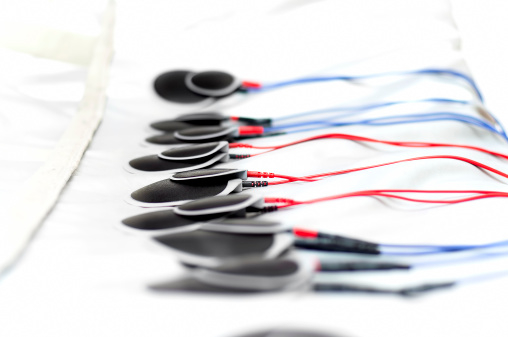 According to a new study published in the journal Obesity, stimulating the brain using electrical pulses may help fight obesity.
According to a new study published in the journal Obesity, stimulating the brain using electrical pulses may help fight obesity.
Lead study researchers, Marci Gluck, explains, “Brain stimulation appears to be a useful tool for modifying activity of the prefrontal cortex, indicating the importance of mental processes in the development and treatment of obesity.”
Gluck mentioned that previous studies she conducted showed lower levels of brain activity in the left prefrontal cortex of obese individuals after eating when compared to leaner participants. As she notes, regulation, reward and taste are all been associated with that particular brain region.
“It is possible that disruption of this area in people who are obese might impair regulation of eating behavior and food choice, so this region might be a potential target for intervention in obesity,” adds Gluck.
However, not all experts believe that electrical stimulation of the brain is a good treatment for obesity. Dr. David Katz, director of the Yale University Prevention Research Center, expresses his concerns by noting that the alternative treatment may be an easy way to avoid dieting and eating healthier foods to lose weight. Dr. Kitz notes, “I find the notion that as a culture we might be willing to continue spending money on junk foods that make us overeat, get fat, and get sick, and then spend more money on electrical jolts to our brains to help us resist that junk food alarming and absurd.”
For this particular study, researchers randomly assigned nine obese volunteers to one of two groups: one received three phony electrical stimulation sessions or three sessions of actual electrical brain stimulation over a nine-day period. After each session, participants had free access to beverages and food from the vending machines. In another nine days, the researchers repeated the experiment.
The results? Researchers found no differences in the side effects in either group.
However, Gluck remains optimistic that the findings of this proof of concept experiment may lead to further research and perhaps, eventually, a treatment that can be used outside of a medical environment: “If future studies show promising results, this technique could be used outside of a medical setting. Just as the light box became a home intervention for treating seasonal affective disorder, this device could potentially be used at home to treat weight-related disorders.”
Meanwhile, Dr. Katz notes that eating prospering and maintaining a good level regular physical activity are the best weapons for patients to fight obesity. Dr. Katz concludes by warning, “While there may be rare applications of this technology, I would encourage those seeing any kind of public health solution here to change their minds.”
Source for Today’s Article:
Reinberg, S., “Could Brain Stimulation Be a Way to Weight Loss?” Medicine Net web site, November 6, 2015; http://www.medicinenet.com/script/main/art.asp?articlekey=191717.
